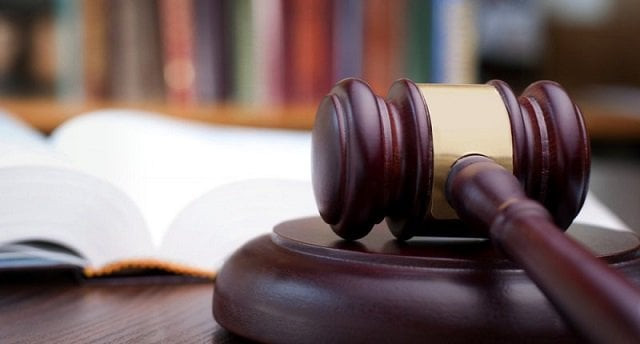IHC sets aside govt’s decision to award multibillion-rupee tobacco track-and-trace license
FBR had allowed consortium to change quoted price for tobacco track-and-trace licence

PHOTO: REUTERS
A single-judge bench decision also sheds light on how vulnerable the Ministry of Law has become under political and bureaucratic pressures, as it took no time in changing its “no” to “yes”.
The judgment also points out how the Federal Board of Revenue (FBR) manipulated the process to favour one party and allowed it to change the quoted price after the opening of financial bids.
The ruling came in response to a petition filed by the National Institutional Facilitation Technologies (NIFT) that challenged the FBR’s decision to grant the tobacco track-and-trace licence to National Radio and Telecommunication Corporation (NRTC) by bending rules and the process.
“Writ petitions are allowed; the FBR’s letter dated October 29, 2019, whereby the licence granted to NRTC is set aside,” said the IHC judgment. The decision of the Grievances Redressal Committee (GRC) in November 2019, whereby NIFT’s complaint had been rejected, was also set aside.
The FBR had given the licence to NRTC at a price of Rs731 per 1,000 stamps for five years to establish, maintain, and operate the whole track-and-trace system for tobacco products in Pakistan. However, NRTC had quoted an offer of Rs0.731 per 1,000 stamps, which it subsequently claimed was a “mistake”.
“It is declared that the process adopted for allowing NRTC’s request for the correction of a mistake in its financial bid suffered from material irregularity and unreasonableness; and the FBR is at liberty to initiate a fresh bidding process strictly under the law,” according to the court decision. “How the decision to award the licence to NRTC was taken by the FBR when tested on the touchstone of the Wednesbury principle of reasonableness, cannot, in my view, withstand the test of judicial review,” wrote Justice Miangul Hasan Aurangzeb.
Pakistan had committed to the International Monetary Fund (IMF) that it would issue a licence for the track-and-trace system for cigarettes by the end of September 2019 and roll out the system by the end of March 2020 to strengthen the collection of excise duty on cigarettes and eliminate illicit trade.
According to some estimates, tax evasion in the cigarette sector stands at a minimum Rs40 billion annually. NIFT placed the third-lowest but a clean bid, offering a price of Rs868.36 per thousand cigarettes. The second bidder had given a conditional bid, which the FBR rejected.
In September last year, the FBR also amended the selection criteria after advertising the tender.
NRTC had quoted Rs0.731 per 1,000 stamps but on October 23, 2019, the firm informed the GRC of the FBR that it had “mistakenly written” Rs0.731 per 1,000 stamps and that its bid was Rs0.731 per one stamp, which made its bid Rs731 per 1,000 stamps.
NRTC requested the GRC to accept the said clarification and declare its status as the lowest bidder.
The dubious role of the law ministry
The FBR then sought clarification from the Ministry of Law whether it could accept the change in bid price of NRTC. In response, the law ministry issued two contradictory legal opinions in one day, showed the judgment.
The ministry’s first opinion was that a written or verbal explanation could not be taken as part of the bid, therefore, the bid would be examined as submitted. In its second opinion on the same day, the ministry said NRTC may be permitted to submit to rectify an obvious arithmetical and accidental typographical slip in the bid.
Based on the second opinion, the GRC, on October 28, 2019, accepted NRTC’s representation for the correction of its quoted price from Rs0.731 per 1,000 stamps to Rs731 per 1,000 stamps.
“The question of accepting NRTC’s request to treat its financial bid to be Rs731 per 1,000 stamps would not have arisen if the Law Division’s first opinion remained in the field,” according to the court judgment.
The judge wrote that even the FBR’s lawyer, consistent with his high stature and repute, very fairly submitted that the judgments on which reliance had been placed by the Law Division in giving its second opinion, were “irrelevant”.
“This strikes at the root of the Law Division’s second opinion and renders it flawed and unreliable,” the court said.
“It is my view that an opinion based on irrelevant case law would not be worth the paper it is written on. Since the FBR’s decision to grant the licence to NRTC was based on the GRC’s decision, which in turn was solely based on the Law Division’s second opinion, and since the said opinion was based on irrelevant case law, the entire edifice raised based on the said opinion is liable to crumble,” according to the judgment.
“All these circumstances and, in particular, a “no” from the Law Division turning into a “yes” in one day based on a difference of opinion or disagreement with the FBR cause me to hold that the process culminating in the decision to accept NRTC’s grievance petition and to award the licence to it casts reasonable doubt on the transparency of the exercise, rendering the decision to grant the licence to NRTC unlawful,” it said.
Published in The Express Tribune, May 7th, 2020.
Like Business on Facebook, follow @TribuneBiz on Twitter to stay informed and join in the conversation.



















COMMENTS
Comments are moderated and generally will be posted if they are on-topic and not abusive.
For more information, please see our Comments FAQ